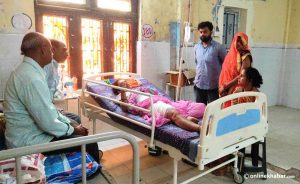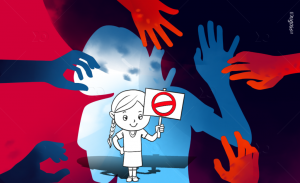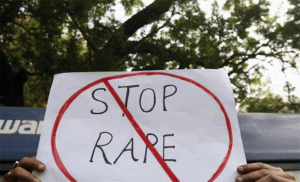
Kathmandu, December 16
A report by the Open Nepal Initiative (ONI) has revealed the alarming rise of online violence targeting women politicians in Nepal. Based on a three-month (August–October 2024) monitoring of social media accounts of 12 prominent women politicians, the report highlights the urgent need for action to make digital platforms safer.
The report indicates that such online abuse not only undermines democratic participation but also silences the significant voices of women in public discourse.
Key findings of the report
- August 2024: Out of 24 reported incidents, 67% were abusive or hateful comments.
- September 2024: Of the 35 incidents, 74.3% involved abusive language, hate speech, threats, and sexual accusations.
- October 2024: The highest number of incidents (44) were recorded, with 70.5% being abusive or hateful.
The report underscores that online abuse often targets women’s gender identity, aiming to demean their credibility and silence their voices.
Platform of concern: Twitter (X)
The majority of online abuse occurred on Twitter (X), identified as the primary platform for such incidents. The misuse of fake accounts and the platform’s wide reach enabled the spread of disinformation and hate speech against women politicians.
Notable cases
- Toshima Karki: The former health minister faced the highest number of attacks, particularly in October, when she encountered 23 incidents. Her advocacy on disaster preparedness and anti-corruption drew significant online backlash.
- Sumana Shrestha: The former education minister faced continuous harassment for her posts defending party leader Rabi Lamichhane against allegations.
- Arzu Rana Deuba: Despite her achievements as the Foreign Minister, she was subjected to misogynistic remarks and unsubstantiated corruption allegations.
- Sunita Baral: The UML MP endured character assassination and false narratives.
Broader implications
The report argues that online violence against women in politics is not limited to personal attacks but threatens democratic principles of equality and representation. Women are often discredited and their contributions undermined, regardless of their political roles or achievements.
ONI researcher Dipak Adhikari said, “Online violence against women in politics endangers not just their personal lives but also the democratic ideals of equality and representation. We urge the government, social media companies, and civil society to unite in creating safer and more inclusive digital platforms.”
The report concludes that addressing gender-based online violence is essential to strengthening Nepal’s democracy. Ensuring women’s voices in politics and protecting their rights should be a national priority.
The Open Nepal Initiative (ONI), a Kathmandu-based non-profit, is dedicated to strengthening democracy and the rule of law. It promotes accountability and transparency to empower citizens.
























